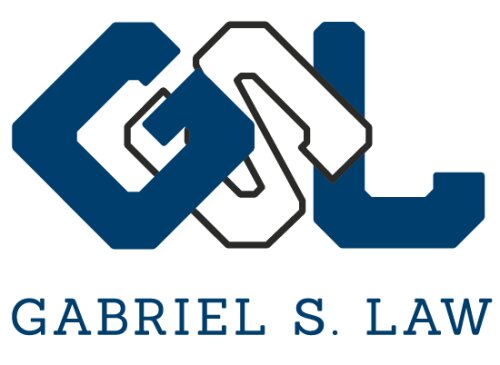Best Permanent Residency Lawyers in San Jose
Share your needs with us, get contacted by law firms.
Free. Takes 2 min.
List of the best lawyers in San Jose, United States
1. About Permanent Residency Law in San Jose, United States
Permanent residency in the United States is a status granted by the U.S. Citizenship and Immigration Services (USCIS). It allows a person to live and work in the United States on a lasting basis. In San Jose, as in the rest of the U.S., permanent residency is a federal matter, not a San Jose city law issue.
Most San Jose residents pursue permanent residency through either family-based or employment-based pathways, or occasionally through diversity visas, asylum, or special programs. The process typically involves multiple steps, including petitions, potential labor certifications, and an adjustment of status or consular processing. A green card holder gains many rights, but not immediate citizenship, and must maintain certain residency obligations to keep status current.
Two core routes exist: adjustment of status (I-485) for those already in the United States, and consular processing for applicants outside the country. These pathways are governed by federal statutes and regulations, particularly the Immigration and Nationality Act and related USCIS policies. For precise procedures, dates, and forms, refer to primary government sources noted below.
According to USCIS, the green card process involves petitions, potential labor certification, and a final adjustment of status or consular processing step that leads to permanent residency.
Recent trends in the San Jose area reflect its status as a major tech hub, with many employment-based green cards issued to skilled workers in the Silicon Valley. Processing times and backlogs have been a prominent industry-wide issue, influenced by policy updates and administrative resources. See official government guidance for current timelines, forms, and eligibility.
Key sources to consult: USCIS overview of green cards and the adjustment of status process, and the Secretary of State’s guidance on immigrant visas and visa processing.
2. Why You May Need a Lawyer
Permanent residency cases in San Jose commonly involve complex factual or legal questions. A qualified immigration attorney can help navigate the federal rules that apply to your situation, coordinate with your employer or family petition, and prepare you for potential interviews or waivers.
Scenarios below illustrate concrete, real-world situations that often require legal counsel in the San Jose area:
- A tech worker in San Jose receives an I-140 approval but faces a long visa retrogression or an RFE from USCIS that requires strategic documentation and timing decisions.
- A Bay Area employer misclassifies a PERM labor certification or withdraws support after an I-140 is filed, risking the entire employment-based green card process.
- A San Jose resident with a prior unlawful presence or inadmissibility issue needs a waiver (I-601 or I-212) or a strategy to avoid bar limitations before filing I-485.
- A family-based case involves multiple petitions, removals of conditional status, or proof of relationship authenticity during interviews in the Northern California region.
- A highly skilled professional seeks a National Interest Waiver (NIW) or other discretionary pathways and needs a persuasive evidentiary package and expert guidance on eligibility.
- Travel or work-related complications arise while an I-485 is pending, requiring careful planning to avoid abandonment of residency or out-of-status concerns.
In all cases, an attorney provides strategic advice, helps organize documentary evidence, and communicates with USCIS on your behalf. When you engage legal counsel, you should use the term attorney or lawyer, as this is the standard terminology in U.S. practice in California.
3. Local Laws Overview
Permanent residency in the United States is governed by federal law, not local San Jose ordinances. However, local practice and administration interact with federal immigration rules in meaningful ways, including how evidence is prepared, where and how interviews occur, and how backlogs and processing times affect applicants in the Bay Area.
The following statutes and regulations are central to most permanent residency cases and are referenced repeatedly in San Jose practice:
- Immigration and Nationality Act (INA) - The foundational federal statute governing immigrant eligibility, petitions, and admission. Key sections cover family-based and employment-based immigration paths, including preferences and categories.
- 8 U.S.C. § 1153 - Employment-based immigrant visa classifications and preferences.
- 8 U.S.C. § 1255 - Adjustment of Status, which governs the process to obtain permanent residency from within the United States.
In practice, many San Jose applicants rely on 8 C.F.R. Part 245 (Adjustment of Status procedures) and related USCIS guidance to navigate eligibility and filing requirements. For an official overview, see USCIS resources on adjustment of status and the visa bulletin for immigrant visa numbers.
Recent trends and notes: Processing times for green cards in California can vary widely by category and field office, with observed backlogs in employment-based and family-based streams. USCIS provides updated processing time estimates and guidance on how delays may impact your case. See official sources for current timelines and policy notices.
Key government references: USCIS Green Card and Adjustment of Status pages, and Travel.State.Gov guidance on immigrant visas and processing. These sources provide the authoritative framework for how permanent residency works in San Jose and across the United States.
4. Frequently Asked Questions
What is permanent residency in the United States?
Permanent residency is a status that allows a non-citizen to live and work in the U.S. on a long-term basis. It is officially known as a green card holder's status, and it is granted under federal law.
How do I apply for a Green Card in San Jose?
Most applicants start with an approved petition (I-130 family petition or I-140 employer petition) and then either file I-485 within the U.S. or go through consular processing abroad. Your attorney can tailor a strategy based on your category and location.
When should I hire a permanent residency lawyer?
Consider hiring an attorney if you have complex eligibility, potential inadmissibility issues, multiple petitions, or a prior negative immigration history. An attorney helps avoid common errors and communicates with USCIS on your behalf.
Where can I file Form I-485 in California?
Filing locations depend on the category and your current place of residence. Many applicants file with USCIS electronically, but some scenarios require paper filings or interviews at a local district office. Your attorney will confirm the correct process for you.
Why do some cases require a PERM labor certification?
Employment-based green cards often require a PERM labor certification to prove there are no qualified U.S. workers for the position. This step is typically a prerequisite before an employer can file I-140 for an immigrant worker.
Can I adjust status if I am outside the U.S.?
No, not generally. If you are outside the United States, you typically pursue consular processing at a U.S. embassy or consulate. An attorney can help determine which path is right for you.
Should I hire a lawyer for an I-130 petition?
Yes, if you anticipate potential eligibility issues or need guidance coordinating family relationships across borders. An attorney helps compile supporting documents and responds to USCIS requests.
Do I qualify for a family-based Green Card in San Jose?
Qualifying family categories depend on your relationship to a U.S. citizen or permanent resident and household size. An attorney can assess eligibility and help prepare the petition package.
Is there a difference between adjustment of status and consular processing?
Adjustment of Status occurs inside the United States, while consular processing happens at a U.S. embassy or consulate abroad. Both lead to permanent residency but involve different steps and timelines.
How long does the Green Card process take in the Bay Area?
Processing times vary by category and field office. Some I-485 cases may take 8 to 14 months or longer depending on backlogs and category. Check USCIS processing times for current estimates.
What are common reasons for a Green Card denial?
Common reasons include ineligibility under a visa category, lack of supporting documents, misrepresentation, or issues with admissibility. An attorney helps pre-empt these problems with a thorough filing strategy.
How much does a Permanent Residency lawyer cost in San Jose?
Costs vary by case complexity and the attorney’s experience. Expect to pay a retainer plus hourly rates or flat fees for specific services, with initial consultations often ranging from modest to several hundred dollars.
5. Additional Resources
Access to credible information and professional guidance is essential for permanent residency matters. The following government and professional resources can help you understand your options and find qualified help.
- U.S. Citizenship and Immigration Services (USCIS) - Official federal agency that oversees immigrant petitions, forms, case processing times, and status updates. https://www.uscis.gov
- Travel.State.gov - Immigrant Visas and Processing - Official resource for consular processing, visa categories, and visa bulletin information. https://travel.state.gov/content/visas/en/immigrate.html
- American Immigration Lawyers Association (AILA) - Professional body offering guidance and a lawyer directory for immigration matters. https://www.aila.org
6. Next Steps
- Clarify your immigration goals - Decide whether you seek family-based or employment-based permanent residency, or another pathway. This helps determine eligibility and required documentation. Timeline: 1-2 days.
- Gather documentary evidence - Compile passports, birth certificates, marriage certificates, tax returns, job offers, and employer petitions. Timelines: 1-3 weeks depending on availability.
- Identify potential paths with a Bay Area immigration attorney - Seek a lawyer who specializes in permanent residency and has experience with San Jose clients. Timeline: 1-2 weeks to arrange consultations.
- Schedule initial consultations - Book meetings to review your situation, discuss strategy, and understand fees. Timeline: 2-4 weeks for consultations, depending on availability.
- Choose your counsel and sign engagement terms - Confirm scope of representation, fees, and communication expectations. Timeline: 1 week after your final consult.
- Prepare a personalized case plan - Your attorney will outline filing steps, supporting documents, and anticipated timelines. Timeline: 1-2 weeks after engagement.
- Submit filings and monitor progress - File the appropriate petitions and forms, respond to requests for evidence, and attend interviews if required. Timeline: 2-18 months or longer, depending on category and backlog.
Lawzana helps you find the best lawyers and law firms in San Jose through a curated and pre-screened list of qualified legal professionals. Our platform offers rankings and detailed profiles of attorneys and law firms, allowing you to compare based on practice areas, including Permanent Residency, experience, and client feedback.
Each profile includes a description of the firm's areas of practice, client reviews, team members and partners, year of establishment, spoken languages, office locations, contact information, social media presence, and any published articles or resources. Most firms on our platform speak English and are experienced in both local and international legal matters.
Get a quote from top-rated law firms in San Jose, United States — quickly, securely, and without unnecessary hassle.
Disclaimer:
The information provided on this page is for general informational purposes only and does not constitute legal advice. While we strive to ensure the accuracy and relevance of the content, legal information may change over time, and interpretations of the law can vary. You should always consult with a qualified legal professional for advice specific to your situation.
We disclaim all liability for actions taken or not taken based on the content of this page. If you believe any information is incorrect or outdated, please contact us, and we will review and update it where appropriate.










